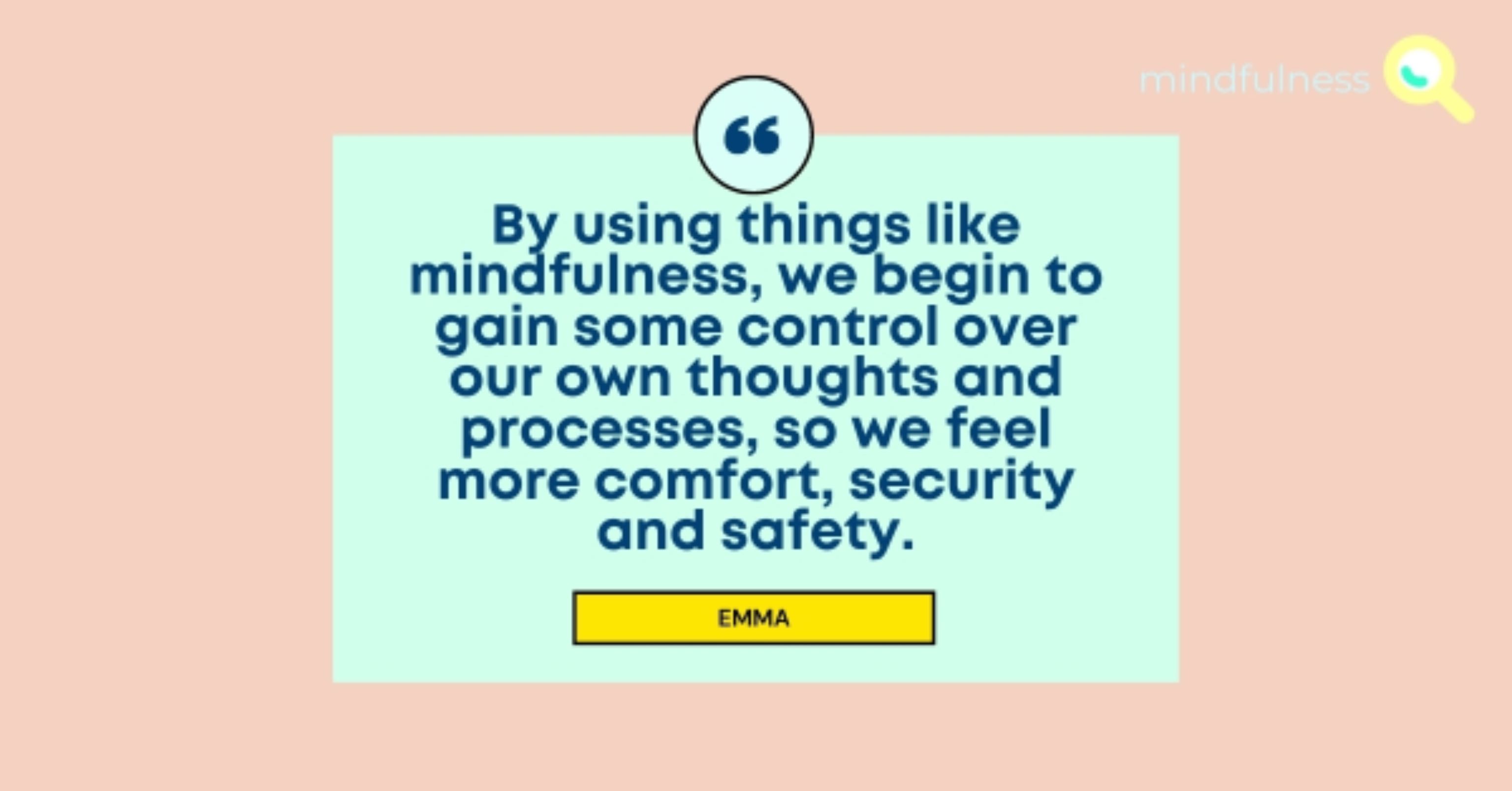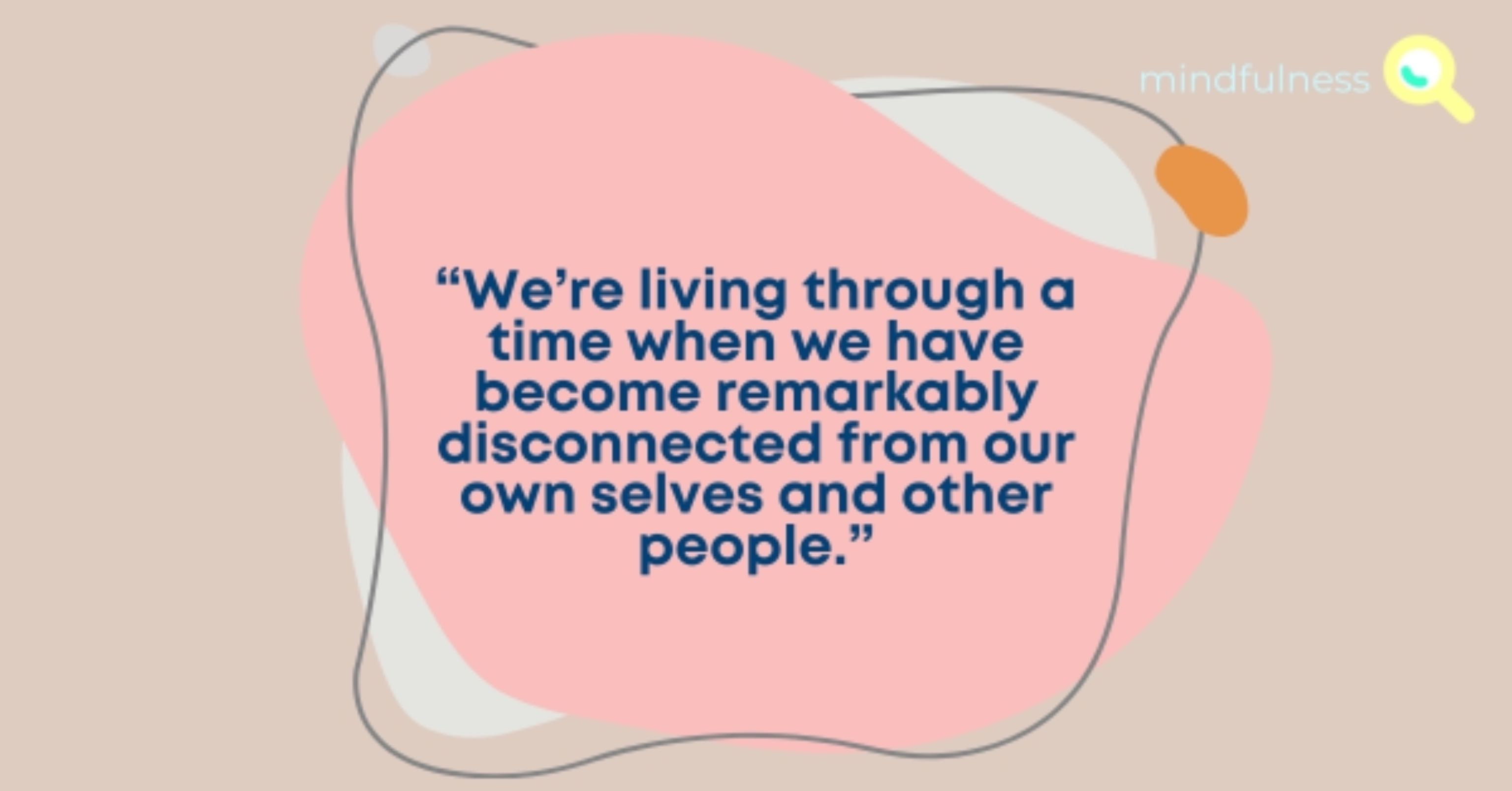Reviewed By Cara Collins - Registered Member MBACP Adv. Dip.
How Can Mindfulness Help Me?
31 March 2021
“Mindfulness” is everywhere. But what can it really do to help your mental health and does it actually work?
Mindfulness is the self-care trend of the moment right now. From colouring books to digital apps, mindfulness is having its moment in the spotlight. But when it comes to being more “mindful”, what does it involve? And does it actually work? Guest blogger and counsellor, Emma, shares some tips for how mindfulness has changed her life.
Emma is a registered counsellor and member of BACP. She uses an integrative approach to support clients in the areas of suicide ideation, self-harm, depression, grief, low self-esteem, sexual orientation, anxiety, anger and survivors of abuse/sexual abuse.
A lot of people tend to think of mindfulness as a ‘technique’ or another tool to put in their tool kit, a bit like CBT or other coping mechanisms. Of course mindfulness can be used in this way, but I believe to benefit from it greatly, it’s more about mindfulness becoming a way of life.
It’s like doing a crash diet to fit into clothing versus making permanent lifestyle and dietary changes you can always live with. It’s looking at mindfulness as something you do all the time, that will pay off down the line and last forever, as opposed to a short-term fix.

Use free apps to settle into mindfulness
I first approached mindfulness through an app, INSIGHT TIMER, and their free Mindfulness Daily course. After doing it daily, I began to notice a shift in myself about ten days in and began reading up more on meditation. I then used Insight Timer to access daily meditations, which are all free and totally accessible.
Once making mindfulness and meditation a part of my daily routine, I have found it can very organically become a way of life in everything you do. Once you start investing in your emotional wellbeing more, this nurtures more self-compassion which then ripples out to other areas of life. For instance, I’m now more mindful on how much alcohol I might drink and I ask myself if my diet is helping me or hindering me and if I’m getting enough rest. I’m more aware when in conversations with people if I’m giving them space to be heard and I ask myself do I really need to interrupt. I’m more aware of what I’d like to say and when I should say it.
Mindfulness can help you feel in control of your emotions
From my personal experience of using mindfulness practices, I’ve noticed it’s helped me be able to pause and observe before reacting and this has been a game changer for me. I’m much more able to observe how I’m feeling about something in the moment and to pause before I react. I take a moment and think about why I might be feeling that way and how I want to respond. For people with anxiety, mindfulness can help create space to acknowledge your thoughts before reacting to them.
Mindfulness can help you feel more gratitude
My mindfulness practice has helped me have more awareness of the world around me and a greater gratitude for my own health and wellbeing. I’m able to apply more self-compassion when I’m struggling with something and allow myself some room to work it out or forgive myself for just having a bad day and not always being able to nail it.

Why does mindfulness work?
Meditation in particular, is such a valuable tool. We, as human beings, are experts at avoiding. Generally speaking, we don’t like to face our issues head-on or spend too much time inside our own heads. We will do everything in our power to dodge spending too much time with ourselves and there are normally a million and one things we can distract ourselves with. This is what keeps us from our own authentic selves.
What does “Authentic Self” mean?
Your “Authentic Self” is who you are when you strip away the influence of other people and take away labels, like “mum” or “dad”, or your job title. It’s an honest representation of who you are. When you’re being your Authentic Self, what you say and do aligns with your values and wants.
It can feel uncomfortable for people to sit with their own feelings and our normal instinctive reaction is to avoid what is uncomfortable. Like anything, it takes practice. The more time we spend being still, and sitting with our emotions, the more we can learn about our own selves and what we need. Stillness creates calm and space, which in turn, ripples out to those around us. If we learn how to be still, patient and compassionate with ourselves, we become those things in our relationships, too, and everyone benefits.

Remember to disconnect so you can reconnect
We’re so plugged in to the digital world that we’ve become completely detached from our own selves. Especially at the moment, as sociable beings, we’re not designed to live the way we’re living right now. We need human interaction to feel fulfilled, healthy and balanced. We’re not designed to be isolated for great lengths of time.
Now more than ever, we feel out of control and from this, anxieties are raised and we don’t feel safe. We need to tune in to our own selves and develop our ability to feel safe by self-soothing and self-comforting. It’s about listening to our feelings and finding insight, not fear. Our fears will always be there, so we may as well get to know them. We need to work out what scares us, what makes us feel safe and how to help ourselves.
Starting your own mindfulness practice at home
If you want to start working mindfulness into your daily routine, I would highly recommend the Insight Timer app. It’s free to download and there’s thousands of free meditations and talks on it, everything from silent, guided, music, chanting and more. You can pick a 3 minute one and work yourself up to longer.
Personally, I keep my headphones at the side of my bed. Every morning when my alarm goes off, I put on my headphones and start a meditation. This is what works for me! If life gets in the way then I just find a little time at some other point in the day. Some people like to do it before bed to relax. There is freedom to make mindfulness suit you!. It’s about being compassionate with yourself and going with whatever works for you.
Get Inspired Further
Meditation A Beginners Guide to Visualization
Occupational Therapist explores what visualisation meditations are, how they work, and why they can be a powerful tool for your well-being.
benefits of meditation
Meditation has been around for thousands of years, and it has only been in recent years that science has proven what many have always known - meditation works. Even with only a few weeks of a consistent practice, many of the benefits of meditation can be experienced.
Meditation 6 Barriers for Newbies
Knowing the hurdles you might face as a beginner can really help. Plus we've a bonus, easy-peasy meditation for you to try that won't take up any of your time.



